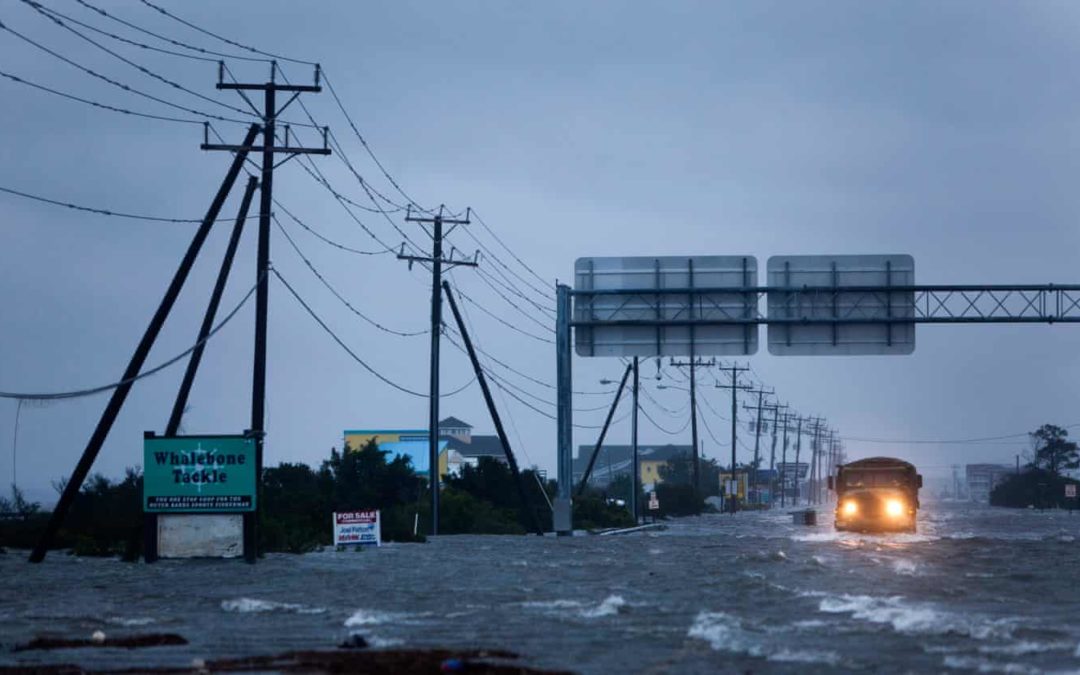SOURCE: The Guardian
DATE: September 12, 2018
SNIP: When North Carolina got bad news about what its coast could look like thanks to climate change, it chose to ignore it.
In 2012, the state now in the path of Hurricane Florence reacted to a prediction by its Coastal Resources Commission that sea levels could rise by 39in over the next century by passing a law that banned policies based on such forecasts.
The legislation drew ridicule, including a mocking segment by comedian Stephen Colbert, who said: “If your science gives you a result you don’t like, pass a law saying the result is illegal. Problem solved.”
North Carolina has a long, low-lying coastline and is considered one of the US areas most vulnerable to rising sea levels.
But dire predictions alarmed coastal developers and their allies, who said they did not believe the rise in sea level would be as bad as the worst models predicted and said such forecasts could unnecessarily hurt property values and drive up insurance costs.
As a result, the state’s official policy, rather than adapting to the worst potential effects of climate change, has been to assume it simply won’t be that bad. Instead of forecasts, it has mandated predictions based on historical data on sea level rise.
“[C]oastal development flourishes as more beachfront buildings, highways and bridges are built to ease access to our beautiful beaches,” Orrin Pilkey, a retired Duke University coastal geologist wrote. “Currently the unspoken plan is to wait until the situation is catastrophic and then respond.”

